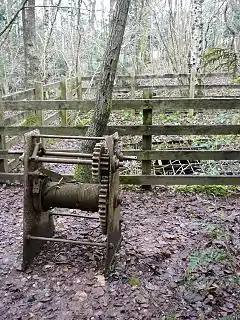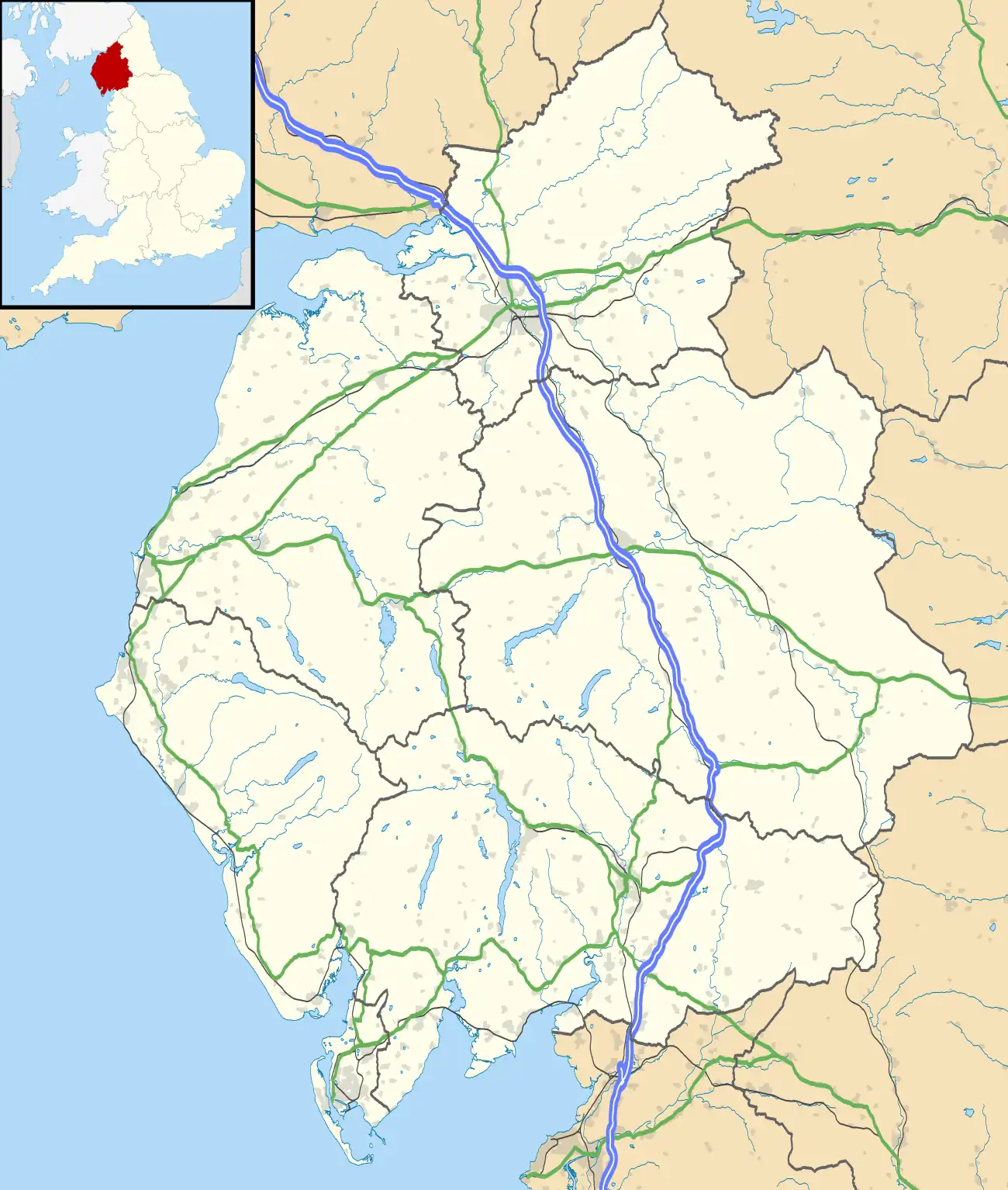Dog Hole Cave
Dog Hole Cave is an archaeologically significant cave near Storth, Cumbria, England.[4] Other names for the cave include Haverbrack Bank Pot,[5] Haverbrack Dog Hole,[2] Fairy Cave,[5] The Dog Hole,[5] and Doghole Cave.[6] It consists of a largely excavated 12 metres (39 ft) shaft formed in Carboniferous limestone with 6 metres (20 ft) of steeply dipping phreatic tube at the bottom.[2][3]
| Dog Hole | |
|---|---|
| Haverbrack Bank Pot | |
 The cave entrance in January 2010 | |
 Showing location of Dog Hole in Cumbria | |
| Location | Storth, Cumbria, England |
| OS grid | SD 4826 8019 |
| Coordinates | 54°12′54″N 2°47′39″W |
| Depth | 12 metres (39 ft)[1] |
| Length | 6 metres (20 ft)[2] |
| Elevation | 60 metres (200 ft)[1] |
| Geology | Carboniferous limestone[3] |
| Entrances | 1 |
| Difficulty | II [1] |
It was originally excavated by J. W. ("Wilfred") Jackson in 1912. Further excavation was carried out by local scouts in the 1950s, and by researchers from Liverpool John Moores University in 2003, and in 2009 it was reported that "subsequent renewed caving activity has revealed more archaeology". Jackson found domestic animal bones (dogs, pigs) some of which are in the Natural History Museum, and the scouts also found human bones.[4][6] The cave was gated in the 1980s to protect the archaeology, but inspection in 2003 showed that this had been destroyed.[6]
Radio carbon dating of the deposits have provided dates ranging from Romano-British to Early Medieval.[6]
References
- Brook, Dave (1994). Northern Caves Volume 3. The Three Counties System and the North West. Skipton: Dalesman Publishing Company Ltd. p. 271. ISBN 1855680831.
- Newton, Jim (November 2005). "Haverbrack Dog Hole". Red Rose Caving and Pothole Club Newsletter. 42 (2). Retrieved 16 October 2011.
- "Morecambe Bay Natural Area profile" (PDF). Natural England. Archived from the original (PDF) on 6 February 2009. Retrieved 30 December 2013.
- Wilkinson, David M.; Hannah J. O'Regan; Tom Clare (2005). "A tale of two caves: the history of archaeological exploration at Haverbrack and Helsfell in southern Cumbria" (PDF). Archived from the original (PDF) on 24 August 2007. Retrieved 16 October 2011.
- "The Dog Hole". Geograph. Retrieved 16 October 2011., quoting "Underground in Furness, Eric G. Holland 1967"
- O'Regan, Hannah (2009). "Doghole Cave, Haverbrack". Liverpool John Moores University, Fossil Mammal Research Group. Archived from the original on 28 October 2011. Retrieved 16 October 2011.